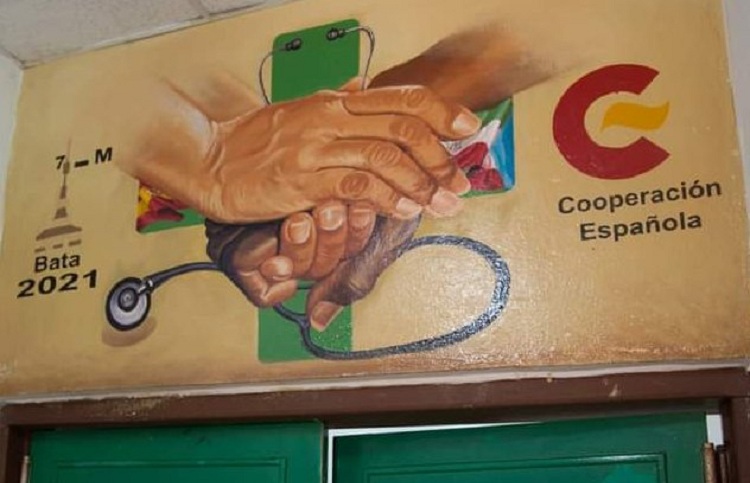The Diplomat
The Spanish humanitarian aid team sent last March 11 to attend to the victims of the explosions at the Nkoantoma Barracks in Bata has returned to Spain after two weeks of work attending to and training local health personnel in the economic capital of Equatorial Guinea.
The Spanish Technical Team for Emergency Aid and Response (START, known as the “red vests”), made up of Spanish public health volunteers and experts in humanitarian action, returned to Spain on March 26, after carrying out a total of 550 hospital interventions in the emergency, ICU, operating room and hospitalization areas and attending to 170 patients in urban areas affected by the blast wave from the arsenal, which devastated up to one kilometer around and caused damage to infrastructure and buildings up to a range of six kilometers.
The START landed in Bata on March 11 as part of the Spanish response to the aid requested by the Government of Equatorial Guinea following the explosion of a military arsenal in the city of Bata on March 7, which killed a hundred people and injured more than half a thousand. Prior to START’s dispatch, the Spanish Agency for International Development Cooperation (AECID) sent a shipment of 60,000 euros worth of medicines and medical supplies to Bata.
The team, made up of 14 people – three surgeons, two emergency doctors and five nurses, all volunteers from the Spanish public system, and four experts in humanitarian action – was led by Roberto Arranz, head of Emergencies at AECID’s Humanitarian Action Office, and worked alongside local staff and other international aid teams in the three local hospitals treating people affected by the explosion.
Another of the START team’s contributions was the rehabilitation of the surgical area of the Hospital General Universitario, which was rendered unusable after being affected by the blast wave, allowing the operating rooms to become operational again in much better conditions than those existing prior to the explosions. During their stay, the START Humanitarian Action experts also provided training to the management staff of the three hospitals on planning for external disasters and multiple casualty events. In addition, the team supported the French bomb squad in their blast zone operation for the clearance of ordnance.
The START team was decorated by the Guinean authorities for its work in the emergency before returning to Spain. This is START’s second mission after the one it carried out in April 2019 in Mozambique to help the victims of Cyclone Idai. Last Tuesday, the Minister of Foreign Affairs, Arancha González Laya, and the Minister of Health, Carolina Darias, signed at the Palacio de Viana in Madrid the four-year renewal of the agreement by which AECID’s START program is made available to the National Health System.






